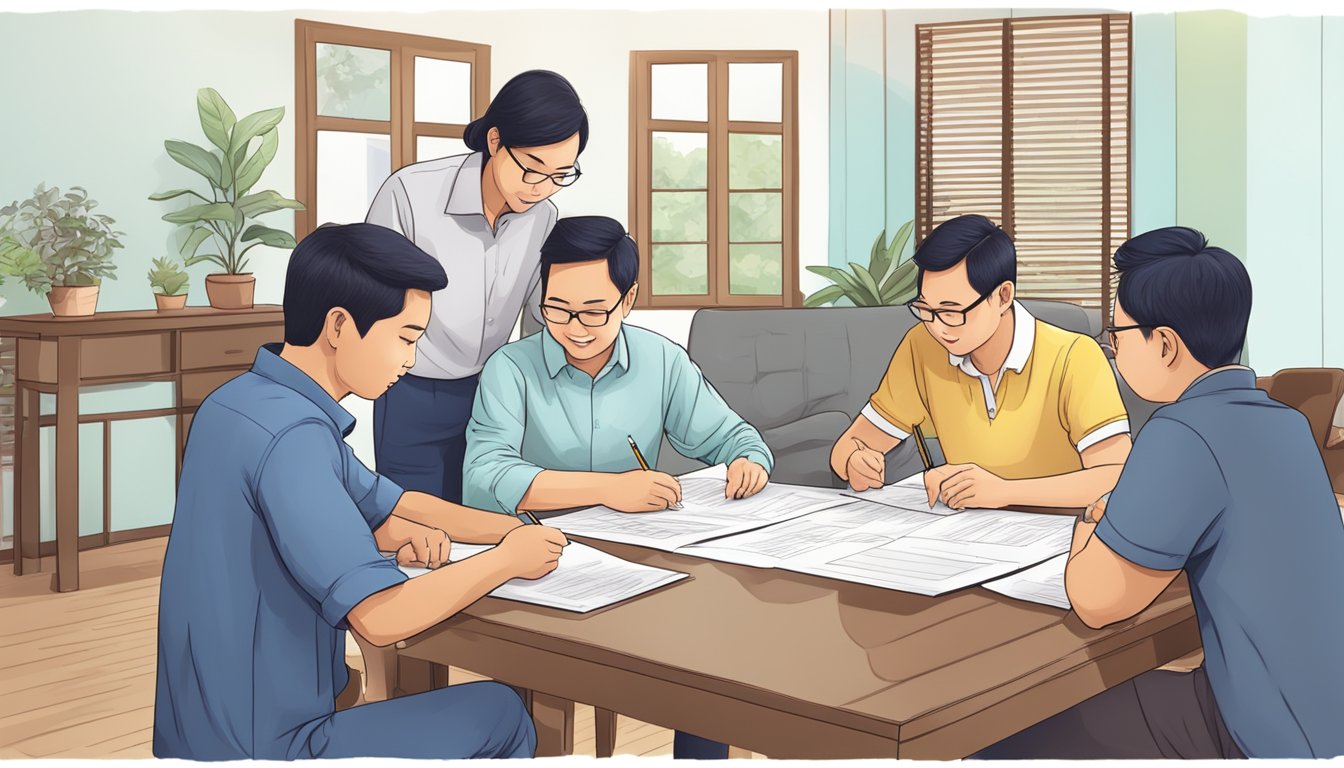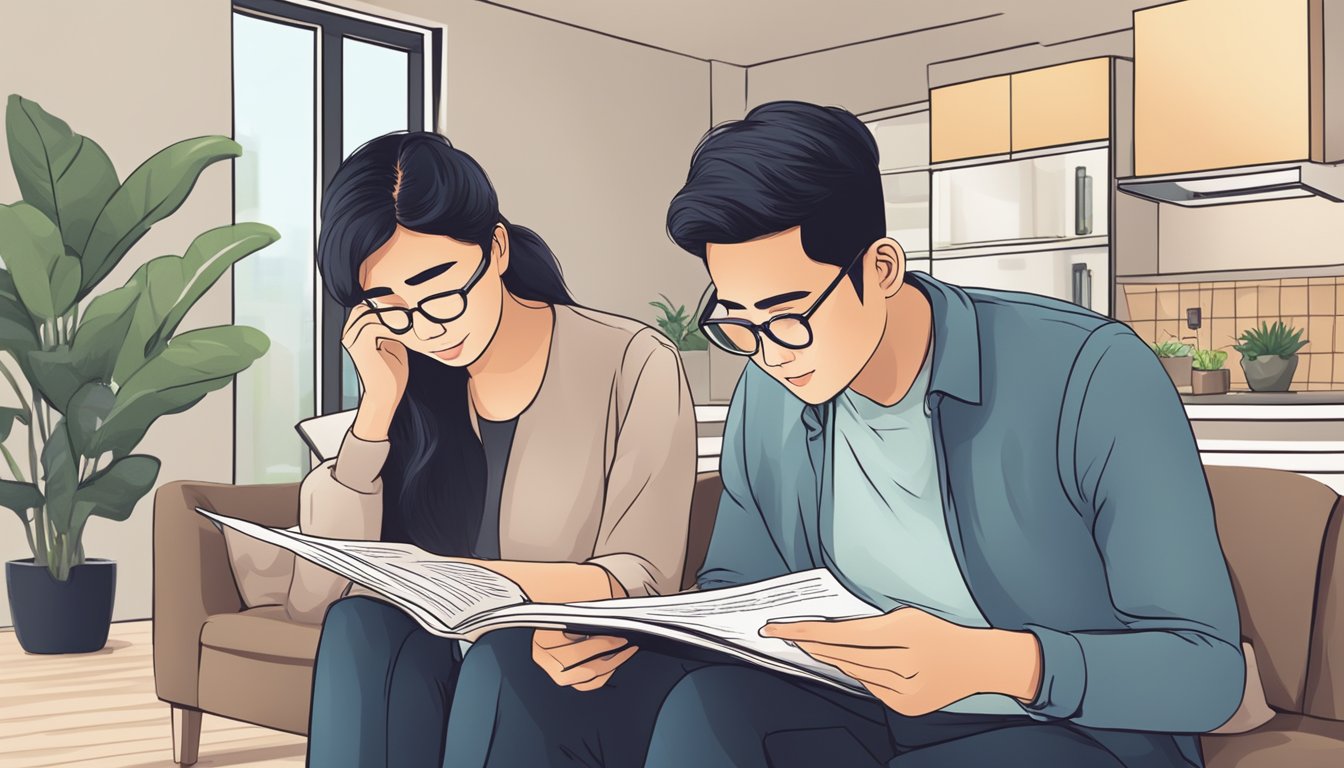Buying a house in Singapore can be an exciting and daunting experience. With a variety of properties available, it can be challenging to navigate the Singapore property market. However, with the right knowledge and guidance, you can find the perfect home that meets your needs and budget.

Understanding the Singapore property market is crucial before buying a house. The cost of a house in Singapore varies by location and property type. HDBs and condos are the most popular types of properties in Singapore. HDBs are public housing flats, and condos are private properties with shared facilities. It is essential to research the different areas and property types to find the one that suits your lifestyle and budget.
The buying process for a house in Singapore can be complex. It involves several steps, including engaging a property agent, securing financing, and negotiating the price. It is essential to work with a reliable property agent who can guide you through the process and help you make informed decisions. With the right guidance and knowledge, you can find your dream home in Singapore.
Key Takeaways
- Understanding the Singapore property market is crucial before buying a house.
- Working with a reliable property agent can help you navigate the buying process.
- Researching different areas and property types can help you find a home that meets your needs and budget.
Understanding the Singapore Property Market

If you are considering buying a house in Singapore, you need to understand the local property market. The Singapore property market is dynamic and evolving, with many opportunities for homebuyers and investors. In this section, we will discuss the types of properties available and the latest real estate trends and news.
Types of Properties Available
There are many types of properties available in Singapore, ranging from HDB flats to commercial properties. Here are some of the most common types of properties:
- HDB flats: These are public housing flats built by the Housing and Development Board (HDB). They are affordable and come in different sizes and types, including 2-room, 3-room, 4-room, 5-room, and executive flats.
- Condominiums: These are private apartments that come with facilities such as swimming pools, gyms, and security. They are popular among expats and those looking for a luxurious lifestyle.
- Executive condominiums: These are a type of public-private hybrid housing that is subsidized by the government. They are similar to private condos but come with certain restrictions on ownership and resale.
- Landed properties: These are houses with a piece of land that the owner can use for gardening or other purposes. They are usually more expensive than other types of properties.
- Commercial properties: These are properties used for business purposes, such as offices, shops, and warehouses.
Real Estate Trends and News
The Singapore property market has been affected by various factors, such as interest rates, government policies, and economic conditions. Here are some of the latest real estate trends and news:
- Prices are stabilizing: According to a report by PropertyGuru, the Singapore property market is expected to stabilize in 2024, with prices remaining relatively flat.
- Cooling measures are still in place: The government has implemented several cooling measures to prevent the property market from overheating. These measures include stamp duties, loan-to-value limits, and seller’s stamp duties.
- Demand for commercial properties is increasing: Despite the pandemic, the demand for commercial properties in Singapore is increasing, especially in the logistics and e-commerce sectors.
- More properties are being built: The government has announced plans to increase the supply of private and public housing in the coming years, which could lead to more options for homebuyers.
In conclusion, understanding the Singapore property market is essential if you are looking to buy a house in the city-state. With various types of properties available and changing real estate trends and news, it is important to stay informed and make informed decisions.
The Buying Process

Buying a house in Singapore can be an exciting and daunting experience. With so many options available, it can be overwhelming to know where to start. However, by following the right steps, you can make the process smoother and more manageable. Here are some key things to consider when buying a house in Singapore.
Finding Your Dream Home
The first step in the buying process is to find your dream home. You can start by searching for properties online using websites such as PropertyGuru and 99.co. These websites allow you to filter your search based on criteria such as location, price, number of bedrooms, and property type (e.g. condominiums, apartments, HDB resale).
Once you have found a few properties that you like, you can arrange viewings to see them in person. During the viewing, take note of the property’s condition, amenities, and proximity to public transport (e.g. MRT). You can also take photos and videos to help you remember the details.
Securing Financial Trust
Before you can buy a house, you need to secure financial trust. This means getting a loan from a bank or financial institution to pay for the property. To do this, you will need to provide proof of income, credit history, and other financial details.
It is important to shop around and compare different loan options to find the one that best suits your needs. You can use online comparison tools to help you with this. Once you have found a loan that you are happy with, you can apply for it and wait for approval.
Navigating Legal Ownership
Once you have found your dream home and secured financial trust, the next step is to navigate legal ownership. This involves hiring a conveyancing lawyer to help you with the legal processes of buying a property. The lawyer will help you with tasks such as drafting the sales and purchase agreement, conducting property searches, and registering the property with the Land Registry.
It is important to choose a reputable conveyancing lawyer who has experience in property transactions. You can ask for recommendations from friends and family, or search for lawyers online. Keep in mind that conveyancing fees can range from $2,500 to $5,000, so make sure to budget accordingly.
In conclusion, buying a house in Singapore requires careful planning and consideration. By following the right steps and working with the right professionals, you can make the process smoother and more manageable. So start your search today and find your dream home!
Frequently Asked Questions

What’s the process for purchasing a property in Singapore?
The process for purchasing a property in Singapore is relatively straightforward. Once you have found a property that you are interested in, you will need to make an offer to the seller. If the seller accepts your offer, you will need to pay a deposit of around 1% of the purchase price.
After this, you will need to engage a lawyer to handle the legal paperwork and transfer of ownership. The lawyer will also conduct a title search to ensure that the property is free from any encumbrances.
Finally, you will need to pay the remaining balance of the purchase price, as well as any additional fees and taxes. Once this is done, you will be the proud owner of your new property!
Are there any eligibility criteria for expats wanting to buy landed property in Singapore?
Yes, there are eligibility criteria for expats wanting to buy landed property in Singapore. Expats who are not permanent residents (PRs) can only buy landed property in Sentosa Cove, and they will need to obtain special permission from the Singapore Land Authority (SLA).
How can I find affordable housing options in Singapore?
Finding affordable housing options in Singapore can be a challenge, but there are a few things you can do to make the process easier. First, consider looking for properties outside of the city centre, as these are generally cheaper.
Second, consider looking for properties that are a little older or in need of renovation. These properties can often be purchased at a lower price, and you can then renovate them to your liking.
Finally, consider working with a property agent who can help you find properties that fit your budget.
What are the best neighbourhoods for property investment in Singapore?
The best neighbourhoods for property investment in Singapore depend on your goals and budget. If you are looking for a high-end property, consider areas like Orchard Road, Sentosa Cove, and Bukit Timah.
If you are looking for more affordable options, consider areas like Tampines, Jurong, and Woodlands. These areas are also up-and-coming, so you may see a good return on your investment in the future.
Could you guide me through the steps of securing a mortgage in Singapore?
Securing a mortgage in Singapore can be a complex process, but here are the basic steps:
- Determine how much you can afford to borrow.
- Shop around for the best mortgage rates and terms.
- Submit your mortgage application and supporting documents to the bank.
- The bank will conduct a credit check and property valuation.
- If your application is approved, you will receive a letter of offer from the bank.
- Review the terms of the offer and sign the loan agreement.
- Pay any fees and charges associated with the mortgage.
- The bank will disburse the loan to the seller, and you can take possession of your new property.
What additional costs should I consider when buying a house in Singapore?
When buying a house in Singapore, there are a number of additional costs that you should consider. These include stamp duty, legal fees, property tax, and maintenance fees.
Stamp duty is a tax that you will need to pay when you purchase a property. The amount of stamp duty you pay will depend on the purchase price of the property.
Legal fees are the fees charged by your lawyer for handling the legal paperwork and transfer of ownership. Property tax is an annual tax that you will need to pay on your property.
Maintenance fees are the fees charged by the management corporation of your building or estate for the upkeep of common areas and facilities. Be sure to factor in these costs when budgeting for your new home.




